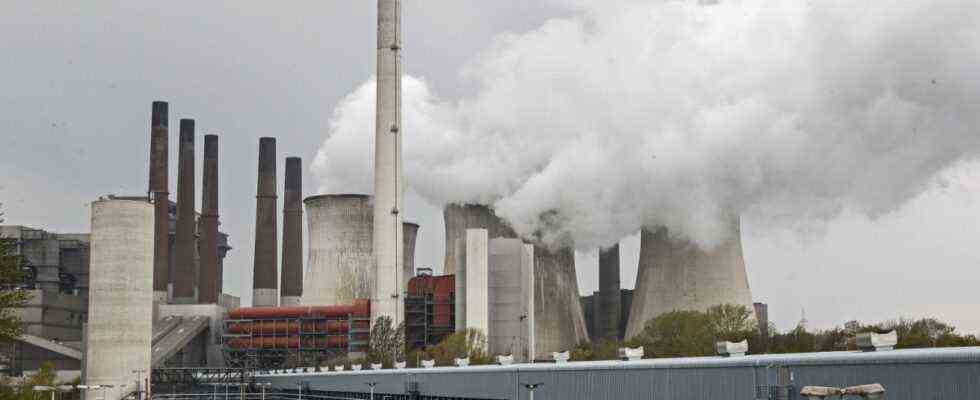The business of Germany’s largest electricity producer RWE has been doing better this year than last expected. The energy company has surprisingly corrected its profit forecast for the current year by a good 350 million euros upwards. However, this is less due to coal-fired power plants or wind turbines, but rather to the trading business.
RWE’s so-called traders trade in electricity or gas around the world, but also in raw materials or with CO₂ emission rights. You buy and sell energy, for example, to large industrial companies or Deutsche Bahn. Their open-plan offices – in Essen and London, for example – are called “trading floors”; you can imagine them like a small stock exchange.
In the first half of the year alone, the trading division made a profit of 525 million euros before interest, taxes, depreciation and amortization, RWE has now announced. Originally, the group had promised a maximum of 350 million euros for this business. The “traders” obviously have a run: the division had already made a surprising amount of money last year. But at the time hardly anyone believed that this success could simply be repeated or surpassed. Stock market analysts point out that the prices of several commodities have recently risen; The energy industry could also benefit from this.
In the first half of the year, RWE generated more conventional electricity than in the weak period of the previous year
However, the good result in retail does not change the fact that RWE is fundamentally undergoing complex change. The Essen-based group is still one of the largest greenhouse gas emitters in Europe. It operates large lignite, nuclear and gas power plants that generated more electricity in the first half of 2021 than in the same period of the previous year; However, the demand was particularly low at the time, as several branches of industry stood still for weeks as a result of the corona pandemic. Of course, RWE’s coal and nuclear power plants will gradually go offline over the next few months and years, as agreed with the state. Their income is therefore gradually disappearing.
On the other hand, the group swapped large parts of its business with rival Eon two years ago: RWE gave up the business with networks and private customers of its subsidiary Innogy. In return, RWE took over all of the wind and solar parks from Innogy and Eon. Since then, the Essen-based company has been the world’s second largest operator of wind turbines on the high seas. “We are investing heavily – and almost exclusively in green energy,” said CEO Markus Krebber.
Markus Krebber has been CEO of Germany’s largest electricity producer, RWE, since the spring.
(Photo: Wolfgang Rattay / Reuters)
Of course, expansion into new markets also involves risks. RWE felt this at the beginning of this year when a cold snap in Texas not only caused solar and wind systems to freeze: gas lines froze up too, and coal and nuclear power plants temporarily failed. As a result, the price of electricity in the US state had risen horrendously. But RWE had already sold part of its own wind power in advance and therefore had to buy electricity at moon prices from time to time in order to meet its obligations. This episode alone cost the group around 400 million euros this year.
Against this background, it is “gratifying” that RWE can now raise the forecast again, says CFO Michael Müller. This gives the group “further momentum” for change. On Friday, RWE temporarily gained two percent in value on the stock exchange, making it one of the biggest daily winners in Germany’s most important share index, the Dax.

